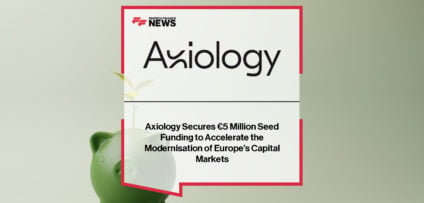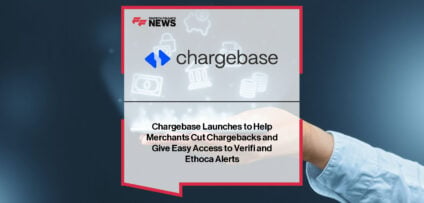Breaking News

untied predicts what we might see in the Budget next week
With less than ten days to go, Kevin Sefton from untied, the UK’s personal tax app, sets out what he thinks will be tackled in this year’s Budget:
“The Chancellor Rishi Sunak faces a difficult dilemma at the beginning of March for his Budget. On the one hand he has a bill of at least £300bn from Coronavirus support measures to pay for, on the other he doesn’t want to break the Conservatives’ 2019 election manifesto promise not to increase income tax, national insurance or VAT rates.
“Despite the fragile state of our economy, and the fact that we are unlikely to see significant tax increases, we do believe there are key focus areas where there may well be movement. These will be centred around the COVID-19 response, general rate driven decisions (main areas of change are likely to be around corporation and capital gains tax), tax system changes and ‘hidden’ taxes.”
“One thing that non-PAYE workers need to watch out for is a potential increase on national insurance contributions for the self-employed and possible new measures aimed at company directors. When he introduced the self-employed income support scheme, back in March 2020, the Chancellor said: “It is now much harder to justify the inconsistent contributions between people of different employment statuses.
If we all want to benefit equally from state support, we must all pay in equally in future.” This potentially signals a desire to do something about the perceived disparity between national insurance rates, or dividend tax rates, between the self-employed, company directors and those who are employed under PAYE. The Chancellor might use this budget as an opportunity to attempt to address this, perhaps at the same time as extending SEISS support to some of those groups who have previously been excluded.”
untied’s budget predictions in each of the areas outlined above are as follows:
COVID RESPONSE:
Self Employed Income Support Scheme (SEISS)
It seems clear the Chancellor will announce new qualifying criteria for a fourth round of SEISS on 3 March 2021. I expect the qualifying criteria to be significantly revised, now this scheme is a year old. It should be extended to include those self-employed after 6 April 2019 and include data from 2019/20 tax returns. We’re also likely to see some changes to the £50k limit or the 50% self-employment income criteria. The scheme may also be extended, or a separate scheme introduced, for company directors, perhaps in conjunction with a change to the rate of tax charged on dividends.
Furlough
We should see the furlough scheme extended, and potentially for a long period of time, perhaps until the end of 2021.
GENERAL RATE-DRIVEN DECISIONS:
Corporation Tax
I think it’s very likely we’ll see an increase in corporation tax. The rate of tax paid by companies on profits is currently 19%. An increase of 1% would still leave the UK below the average corporate tax rate across the European Union and could bring in an extra £3bn. In view of the Conservatives’ triple promise not to increase income tax, NI or VAT rates, corporation tax looks like a likely place where we’ll see some changes.
Capital Gains Tax
I suspect we may also see some changes around capital gains tax. The top rates of capital gains tax, currently 20% and 28%, could be aligned with the income tax rates, of up to 45% for higher rate taxpayers. An Office of Tax Simplification (OTS) review from November 2020 recommended increasing capital gains rates – such changes could be introduced without breaking the governments manifesto promises.
This could be a fairer and more popular way of raising taxes than some other options, as this tax focuses to a greater extent on those who can afford to pay and have accumulated wealth. For example, the OTS report included data which showed that a small number of disposals by successful business owners accounted for the vast majority of gains and capital gains tax revenues. The OTS also suggested reducing the annual exempt amount from £12,300 to between £2,000 and £4,000. There’s also scope to adjust Business Asset Disposal relief (which replaced Entrepreneurs Relief) or even abolish this completely.
If there are significant changes around capital gains tax, the next question is whether these would be introduced immediately, or from a future date. As any delay could lead to a rush to sell assets, motivated by tax planning, I suspect that if there are changes in this area, these would be brought in with immediate effect!
Stamp Duty
The stamp duty holiday in England and NI (on properties up to £500,000) ends on 31 March 2021. Latest rumours suggest a six-week extension, to mid-May.
Income Tax rates
I expect the rates of income tax to remain unchanged.
Personal Allowances
Personal Allowances should increase at least in line with inflation as previously announced and re-iterated in the November Spending Review. There are some rumours the Chancellor is considering freezing personal allowances, but I can’t see him back-tracking on this. In fact, I’d like him to go further and increase personal allowances significantly, to take more people out of the tax system altogether, and to immediately put more money back in the pockets of working people.
National Insurance
There could be a possible increase on national insurance contributions (NIC) for the self-employed and freelancers. Currently employees pay a top rate of 12% NIC, whereas the self-employed top rate is 9%. Although the Conservatives’ 2019 election manifesto promised no increases in rates of NIC, perhaps the Chancellor can find a creative way of tinkering with NIC for the self-employed to get more money in for the government, without technically breaking this promise. For example, an alignment of rates between the self-employed and employees, which doesn’t go above the existing 12% top rate, and perhaps even reduces this to say 11% for all, could probably be spun as not being an overall increase in national insurance. There could also be an opportunity for simplification by aligning the income tax and NIC payment thresholds.
Dividend tax rates
This budget could see some COVID-19 support introduced for directors of limited companies, but this could be at the price of measures to equalise the rates of tax paid on dividends with income tax. Basic rate taxpayers currently pay 7.5% on dividends, and higher-rate taxpayers pay 32.5%. These rates could be equalised with the income tax rates. As such a move could potentially also hit pensioners, who may rely on dividends for a regular income, if there are new measures in this area these may be specifically targeted at owner managed companies.
Pensions tax relief
Some tinkering around pensions tax relief is possible. The Chancellor may announce a phased withdrawal of higher rate tax relief on pension contributions, along with a review of how the net pay arrangements work for pension deductions from salaries. However, I doubt that any such changes would be introduced immediately, so there should still be an opportunity for action to be taken around retirement planning. Anyone planning on making significant contributions to their pension pots over the next year or two should watch this area closely!
SYSTEMS-FOCUSSED AREAS:
Making Tax Digital (MTD)
I expect the income tax and corporation tax timetables for Making Tax Digital (MTD) to remain unchanged. COVID-19 has shown how valuable closer to real time data is for government in quickly identifying those most urgently in need of support. As a result, I don’t think we’ll see any announcement about an extension to the proposed MTD timetables in this budget, as has sometimes happened in the past.
HIDDEN TAXES:
High Income Child Benefit Charge (HICBC)
The high-income child benefit charge (HICBC) applies to anyone with an income over £50,000 who gets child benefit, or if their partner gets child benefit. This threshold was introduced in January 2013 and has never been increased. In 2013 average UK earnings were around £27k, but these are now around £31.5k. This threshold is therefore long over-due an increase and hopefully the Chancellor will look at this in this budget.
Currently a household with combined income of just under £100,000 could still qualify for child benefit with no restrictions, whereas a household with only one worker earning over £50k incurs a charge. This is clearly not fair, especially when many households now have someone out of work because of COVID-19.
OTHER:
IR35
IR35 was introduced in 2000 to address concerns relating to individuals who supply their services via an intermediary (such as a limited company) instead of as an employee, and therefore avoid paying employee income tax and national insurance contributions. Where an assignment is deemed ‘inside’ IR35, PAYE deductions must be made from the contractor’s pay. Any assignment ‘outside’ IR35 is classed as a genuine B2B service and is therefore not subject to the same tax treatment as employees. From April 2021, the government has plans to extend the IR35 reforms to the private sector. This follows the public sector reforms in 2017. The reforms were originally planned for April 2020 but were delayed due to coronavirus.
There is no indication that there will be further delay to the reforms, despite the continuing economic impact of the pandemic. However, our question is whether self-employed contractors can cope with more money being taken out of their pockets at this moment in time, especially as many of them have not been able to claim SEISS.
Savings
The PrizeSaver pilot scheme ends in March 2021. This scheme gives a prize of £5,000, and smaller prizes, to savers in approved credit union accounts. It was designed to encourage saving for the future and encourage saving in credit unions. With high street bank savings rates so low we’d like to see this scheme maintained and expanded, perhaps also to include some other savings providers.
People In This Post
Companies In This Post
- Lüt Announces Strategic Partnership with Safe Harbor to Expand Access to Compliant Closed-Loop Payments for Cannabis and Specialty Merchants Read more
- Figure Partners with moomoo and Keplr to Expand Global Access to the On-chain Public Equity Network (OPEN) Read more
- OneDome Raises $25M Pre-Series C, Bringing Total Funding to $40M Read more
- intelliflo and Söderberg & Partners Form Strategic Partnership to Drive Adviser Efficiency Read more
- Axiology Secures €5 Million Seed Funding to Accelerate the Modernisation of Europe’s Capital Markets Read more













